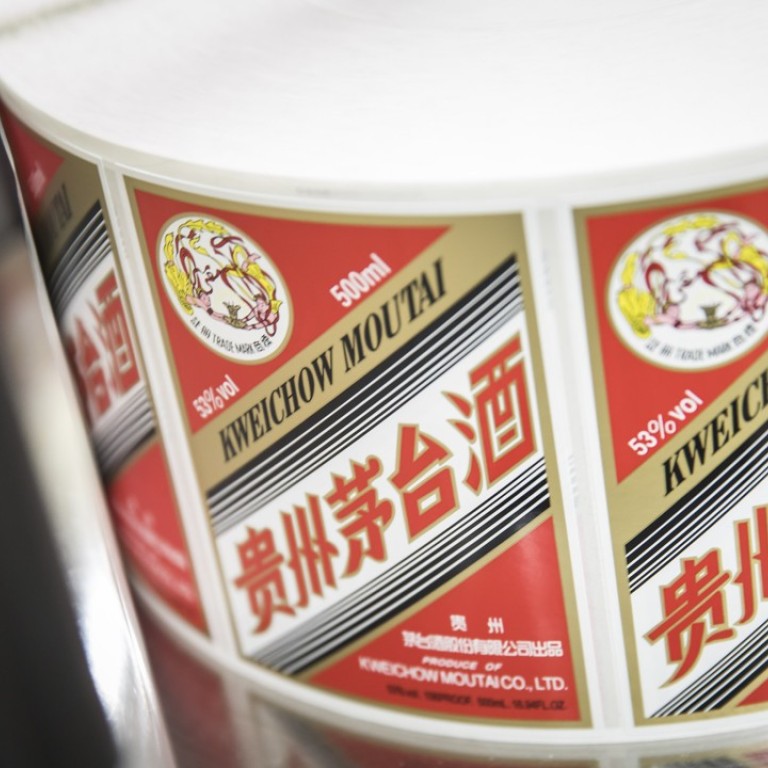
Are Chinese investors abandoning favourite stock pick Kweichow Moutai?
Shares in maker of fiery liquor drop below 200-day moving average price
Shares in Kweichow Moutai, maker of the fiery Chinese liquor once used by paramount leader Mao Zedong to toast guests at state banquets, and the fourth biggest stock on the benchmark Shanghai Composite Index, this month slipped past their average price for the past 200 days for the first time since February 2016.
The 200-day moving average price is typically viewed by analysts as a dividing line between bull and bear markets, with stocks falling below this mark indicating the rise of bearish sentiment. On Monday, Kweichow Moutai dropped by 1.4 per cent to 669.68 yuan in Shanghai, below its 200-day moving average price of 704.69 yuan.
Mao Zedong’s favourite tipple is now a 1 trillion yuan company
China’s biggest liquor producer weakened after advances from customers, a gauge of future sales, dropped in the second quarter and economic growth risks slowing amid the ongoing trade war with the United States.
After a fivefold surge since 2014, Kweichow Moutai is now the priciest stock on a valuation basis among the top 10 companies on the Shanghai Composite, with weighting of 2.9 per cent. Its stock is almost four times as expensive as that of the Industrial and Commercial Bank of China.
Investors including Hengsheng Asset Management and HSBC Jintrust Fund Management have, however, said upscale consumer goods such as Moutai liquor would be no longer immune to a slowdown in the economy.
“The biggest worry among investors is the economic growth outlook,” said Dai Ming, a fund manager at Hengsheng Asset in Shanghai. “Moutai is actually a consumer discretionary good and if growth slows, consumers may abandon the drink for cheaper ones.”
If growth slows, consumers may abandon the drink for cheaper ones
Advances from customers decreased by 3.2 billion yuan (US$468.6 million) in the second quarter from the previous three-month period, though the company has posted revenue growth every quarter since 2016. Its first-half profit rose by 40 per cent from a year ago to 15.8 billion yuan, beating analysts’ estimates by 0.5 per cent, according to Bloomberg data.
Foreign buying of the stock has also slowed. The net purchase of Kweichow Moutai shares by overseas investors through the exchange links with Hong Kong dropped to a five-month low in July, according to data from the city’s exchange.
Despite all this, the stock has fared better than the benchmark gauge this year. Its shares have fallen by 4 per cent while the Shanghai Composite has declined by 18 per cent.
Unsurprisingly, some analysts are unfazed by the weakening in its share price. The number of analysts that recommend buying Kweichow Moutai has risen to its highest level since 2009, with 97.1 per cent rating the stock “buy”, according to Bloomberg data. The 12-month price target was 861.49 yuan, which implies a 29 per cent gain in the stock.
For HSBC Jintrust’s Shi Xingtao, Kweichow Moutai’s relative outperformance into the year may be ending soon as cooling economic growth will eventually weigh on the consumer sector.
“The market has overlooked the characteristics of the late stage of the economic cycle for consumer stocks,” said the Shanghai-based fund manager. “The appeal is no longer adequate.”

